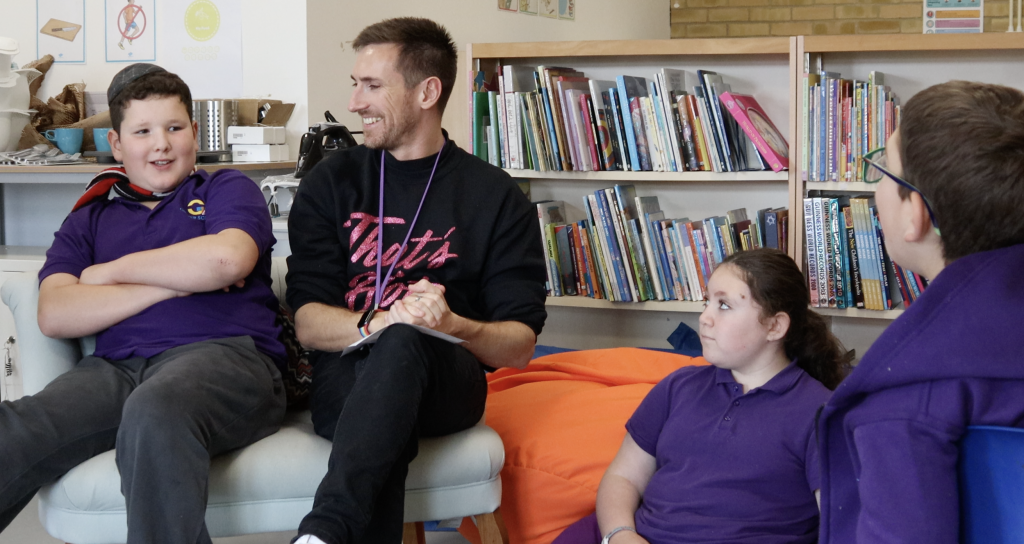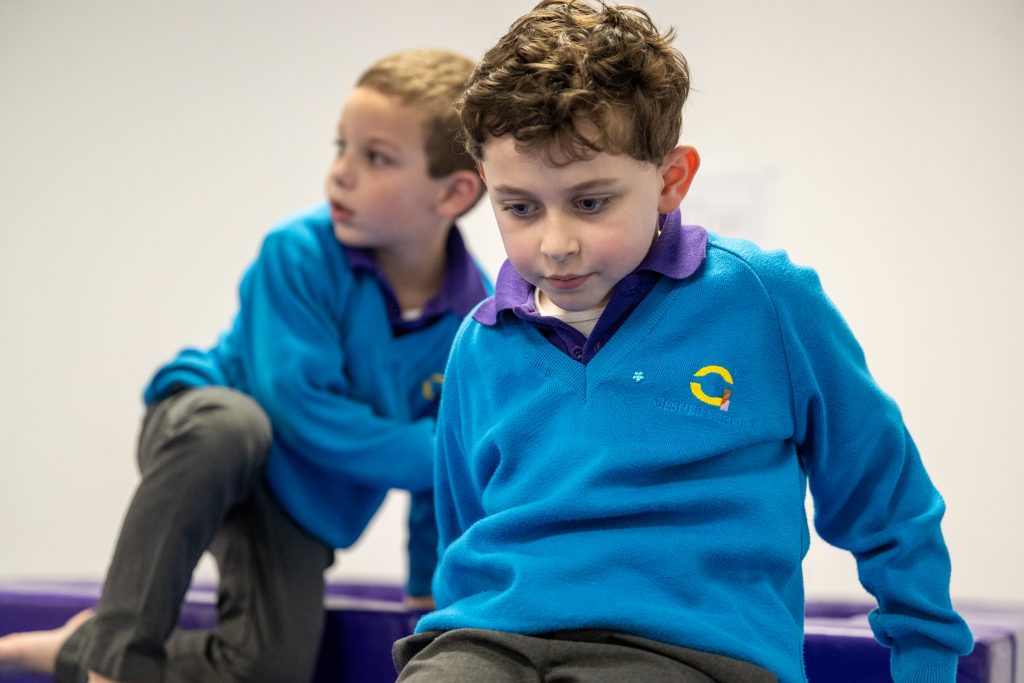Changing Schools, Changing Lives
Sam Dexter

Authentic Voices
Reflecting on the content that appeared in the first issue of The Bridge, we noticed a pattern. There was a lot from the perspective of neurotypical adult experts, but very little from the perspective of neurodiverse young people. This worried us. How could we be creating an educational journal about educating neurodiverse young people, without including the voices of these young people? This is clearly not right.
So, in this issue, and all future issues, there will be a dedicated space reserved solely for pupil voice — featuring the first-hand views of neurodiverse young people. For this issue, we spoke to five young people about how life at Gesher is different from the experiences they had in their previous schools.
Different in the Classroom
All of the students we spoke to described how learning at Gesher was different from their previous schools. One student said, ‘I didn’t learn anything… all I ever did was play around and make things’. When asked what it is like now at Gesher that differs he replied by saying: ‘I have more support here’ and ‘I like learning more… I like learning more so I get even smarter.’
Another student, also speaking on the theme of support, told us how in his previous school:
‘I was learning, learning, learning but didn’t understand one thing and there was no support for me. They just said, you have to do it yourself… In this school, there is a lot more support, like if you don’t understand something, they explain it in a different way.’
The students told us how things were taught differently at Gesher. ‘I find learning better because it’s taught differently. We get to do PBL (Project-Based Learning)… which is fun and creative.’ For another student, not having the pressure of traditional assessment was a huge relief. ‘They [student’s previous school] had lots of tests. And I’m actually glad that my mum put me in this school because otherwise, I would have had to deal with lots and lots and lots of SATs exams.’
The approach to emotional regulation helps in the classroom.
A common theme related to how Gesher’s approach to emotional regulation also helps them in the classroom. ‘I can ask for a break and that means I’ll go outside and when I’m ready I’ll come back’. Another student described how, if the learning environment was too noisy, he knew to ask for ear defenders or he had the freedom simply to find them himself.
Different Outside the Classroom
Another feature shared was how school life is different outside the classroom at Gesher. Around this topic, two main themes emerged: friendship and the school’s therapy dogs. Relationships are a big focus at Gesher (they matter a lot for neurodiverse young people) and on the topic of friendship, students explained how Gesher provided them with the opportunity to build new relationships. ‘School can help us make new friends if we meet more people.’ [That same student went on to ask if the purpose of TThe Bridge was to bring more students to Gesher, suggesting that if it was, there would be ‘more friends also’.]
Other students felt that Gesher had allowed them to develop new interests and passions. ‘I like the fact that school can help me get interested in different things, [friend’s name] has got me interested in Minecraft and stuff like that.’ Another interviewee emphasised that Gesher provided the opportunity and support to build new relationships.
Perhaps unsurprisingly, all students spoke enthusiastically about the positive impact that the visits of Gesher’s therapy dogs, Puplinda and Toby, had on their well-being:
Gesher student: I like it when Puplinda comes to visit.
Interviewer: Why?
Gesher Student: She makes me feel happy and calm.
Others spoke about being excited when Puplinda came to their class and were very concerned that she hadn’t visited for two weeks due to an operation (she is recovering well and will be back in Therapy Dog action before this article goes live).
The improvements mentioned are being followed up.
Always Room For Improvement
As well as hearing their views about what was different between their previous school and Gesher, we also asked what could improve their experience. The most commonly mentioned area for improvement was the playground, with students discussing how there could be more exercise equipment, more swings and slides, and some more creative activities. Another liked that the playground was a ‘very big area’ but felt that the surface material is ‘very tough… every time I slip a bit, I end up with everything in the cut, like rocks and everything.’
This part of each interview was important because it helped to give students agency over the process — not just wanting to hear the positives, but also to learn how we can make things even better. Mindful also of not wanting simply to be a passive ear for young people’s views and concerns, the improvements they mentioned are being followed up by one of Gesher’s Deputy Heads.

For Practitioners: Things We Have Learned
- A useful mantra for thinking about ‘student voice’, especially that of neurodiverse young people, is ‘nothing about us without us’. As such, reflect on something within your setting that you want to change/are already planning to change. How might you gather the views of some of your neurodiverse learners about what this change might mean for them?
- The process of gathering student perspectives and insights with neurodiverse young people can be more time-consuming because there are additional barriers compared to collecting the views of neurotypical young people. We have learned (a) to have a trusted adult ask the questions (quite often not a teacher); (b) to conduct the interview away from the classroom, and (c) to keep it short!
- The use of visuals can support students to share their views about something, especially where a verbal interview doesn’t play to a young person’s strengths. In the Resources for Schools section of this issue we have included an example of the ‘Three Houses’ model, a simple tool to elicit the view of a young person who finds it challenging to verbally express their feelings.
Acknowledgements
Thanks to all five young people who gave up some of their playtime to share their views with us, and to Gesher’s Deputy Head and Dramatherpist, Mr Chris, who was the ‘trusted person’ who conducted the group interview.

